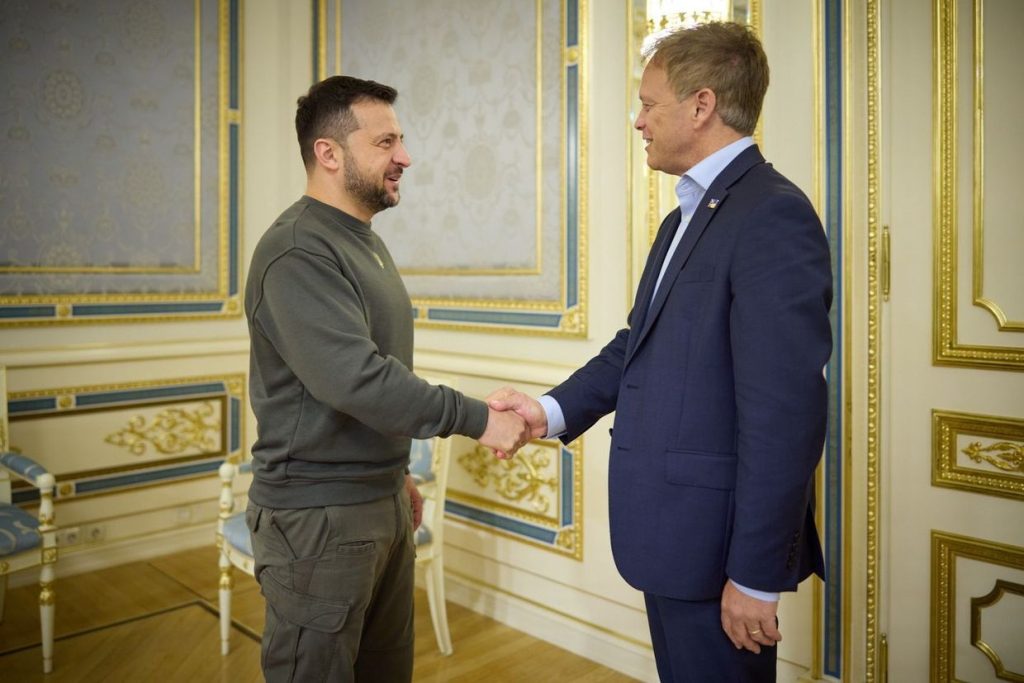The U.K.’s 900 million pound military fund for Ukraine remains largely unused due to bureaucratic delays in awarding contracts, with only about $500 million of the $1 billion donated by Western countries being committed or spent. The International Fund for Ukraine (IFU), managed by the British Ministry of Defense, aims to procure military equipment for Ukraine with contributions from nine other countries. However, there have been criticisms of the slow provision of weapons to the frontlines, with some materials not expected to reach Ukraine until Spring 2025. Delays have been attributed to the need to assess numerous defense companies that have received contracts, hampering the fund’s efforts in aiding Ukraine’s military in the face of critical ammunition shortages and increased Russian aerial attacks.
In response to the challenges faced by the IFU, Defense Secretary Grant Shapps is actively seeking to recruit new countries to join the fund. Nevertheless, the initiative’s track record of delayed cash distribution has reportedly deterred potential donors. The delays in Western aid have become a significant issue for Ukraine’s military, as they continue to face ammunition shortages that undermine their advances on the battlefield. Ukrainian President Volodymyr Zelensky has called on international partners to expand provisions of air defense systems, particularly in light of increased Russian aerial attacks over the last few months. Despite efforts to bolster support and cooperation, the slow progress in distributing aid from the IFU has underscored the urgency of addressing the challenges faced by Ukraine in its ongoing conflict with Russia.
Key developments on April 19 highlighted the escalating tensions in Ukraine, with the country allegedly downing a Russian Tu-22M3 bomber for the first time. The air force reported the incident as part of the ongoing conflict, which also saw Russian attacks in Dnipropetrovsk Oblast resulting in the death of seven individuals, including children, and injuring over 30. At the NATO-Ukraine Council, allies pledged to provide more air defense systems to support Ukraine amidst the intensifying conflict. The Netherlands also announced an allocation of resources to aid in the ongoing efforts to contain the conflict and support Ukraine’s defense against Russian aggression. The developments underscore the critical need for additional support and resources to address the escalating crisis in Ukraine.
The ongoing conflict in Ukraine has been characterized by increasing Russian aggression and attacks, leading to a rising number of casualties and significant challenges for the country’s military. The downing of a Russian Tu-22M3 bomber marked a significant development in the conflict, highlighting the escalating tensions and the complexity of the situation. With continued attacks in various regions of Ukraine, including Dnipropetrovsk Oblast, the toll on civilians and military personnel has been substantial. The international community’s response, including pledges of support and resources, underscores the need for a unified and coordinated effort to address the crisis and provide essential aid to Ukraine in its defense against Russian aggression.
The challenges faced by the IFU in distributing aid and procuring military equipment for Ukraine have exposed the limitations of the current system in supporting the country’s defense efforts. The bureaucratic delays and inefficient processes have hindered the timely delivery of critical supplies, exacerbating the impact of the conflict on Ukraine’s military capabilities. The slow progress in addressing ammunition shortages and providing necessary resources underscores the urgent need for a more streamlined and effective approach to supporting Ukraine in its confrontation with Russia. As the conflict continues to escalate and casualties mount, the importance of swift and efficient aid delivery becomes increasingly vital in ensuring Ukraine’s ability to defend itself and safeguard its sovereignty.
In the face of ongoing challenges and escalating tensions, the need for international support and cooperation in assisting Ukraine is more critical than ever. The provision of air defense systems and other crucial resources is essential in bolstering Ukraine’s defense capabilities and countering Russian aggression. The IFU, despite its delays and shortcomings, remains a vital mechanism for coordinating support from multiple countries and mobilizing resources to aid Ukraine in its fight against Russian forces. Efforts to address the bureaucratic hurdles and streamline the distribution of aid are imperative in ensuring that Ukraine receives the necessary assistance to withstand ongoing attacks and maintain its territorial integrity. By fostering greater collaboration and efficiency in aid delivery, the international community can play a crucial role in supporting Ukraine’s defense and helping to bring an end to the conflict with Russia.















